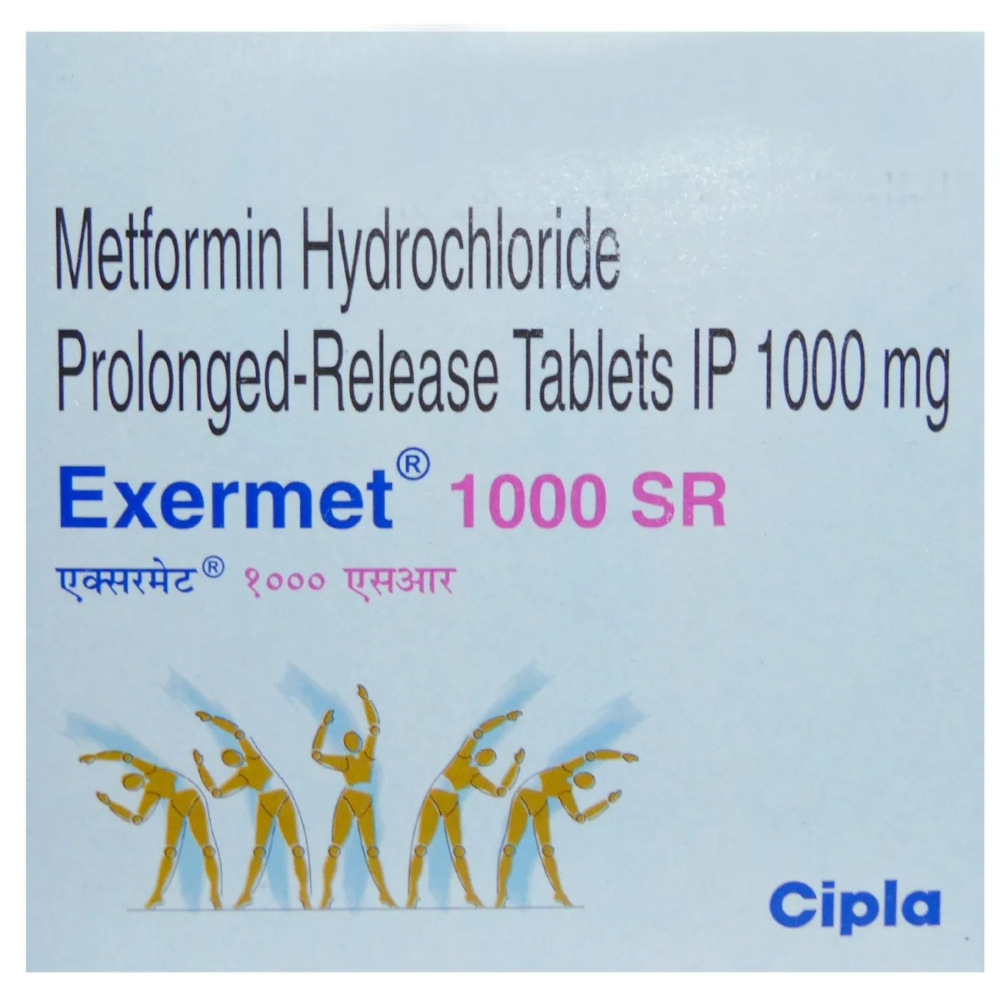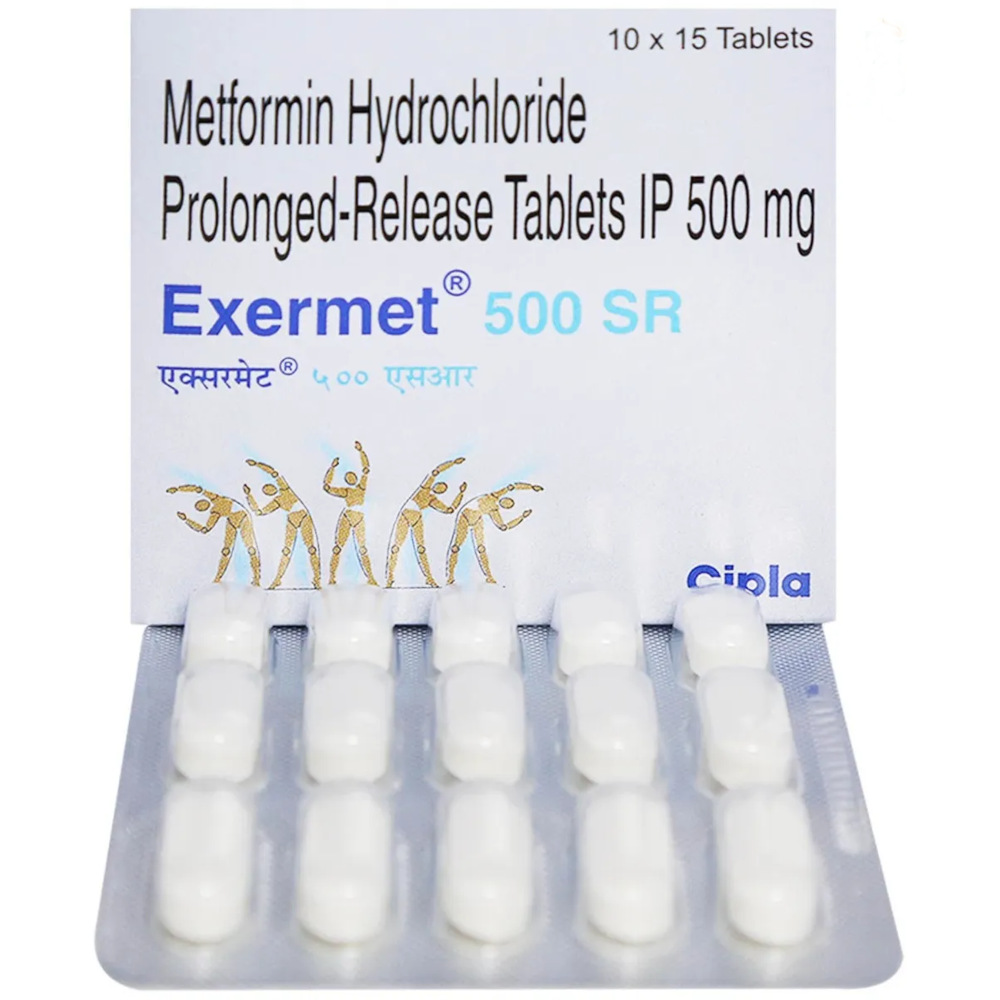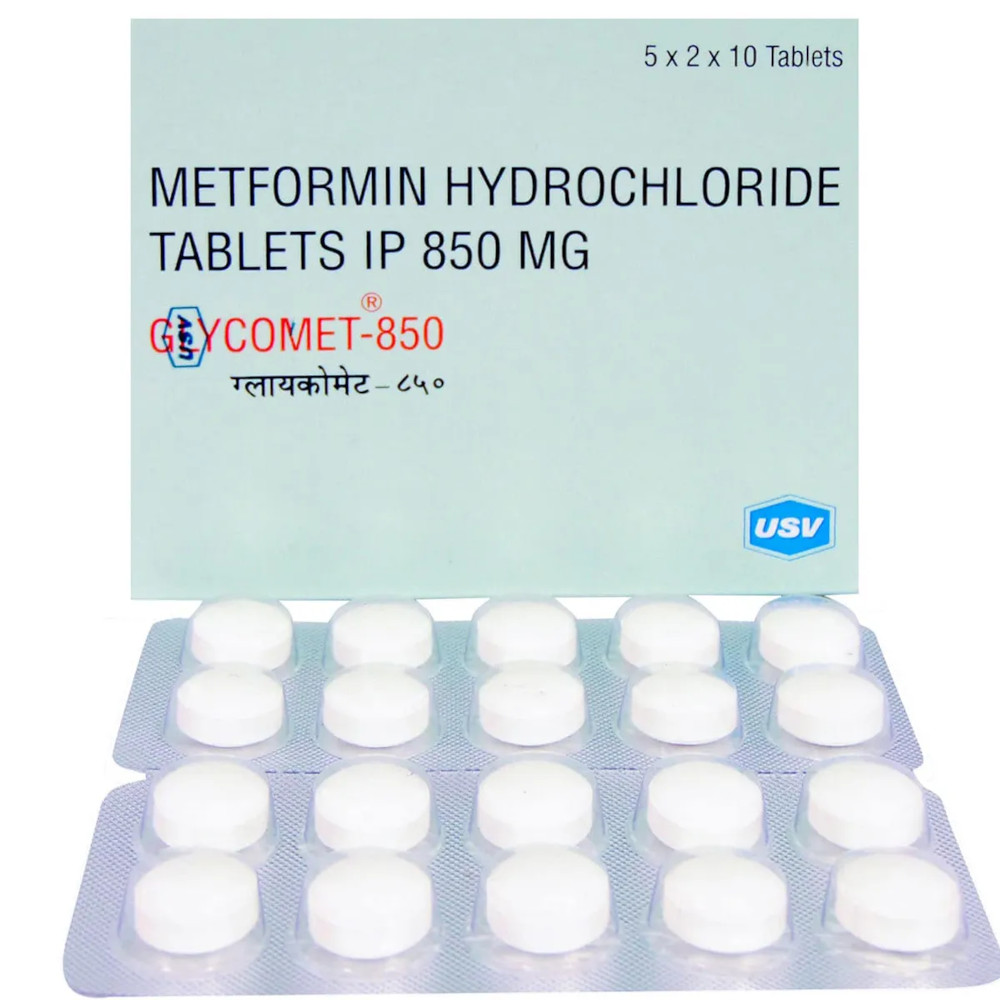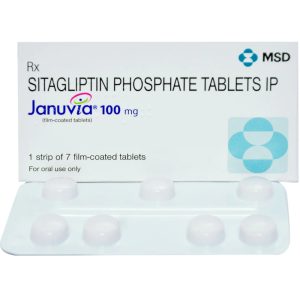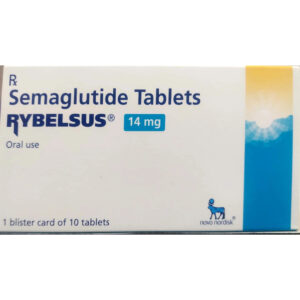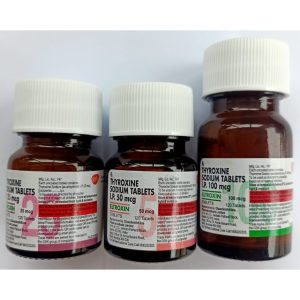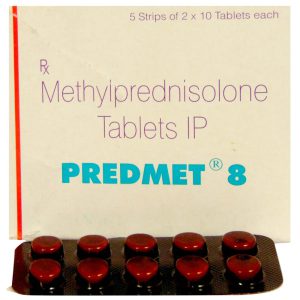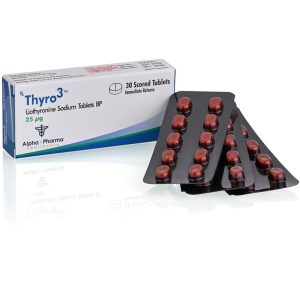Glycomet (Metformin Tablets) – Product Information
Glycomet (Metformin Hydrochloride tablets) / Exermet XR (Metformin SR) is an oral antihyperglycemic drug used in the treatment of type 2 diabetes mellitus (non-insulin-dependent diabetes mellitus) in adults, particularly in overweight patients, when dietary management and exercise alone does not result in adequate glycaemic control (control of blood glucose levels). It is also used in the treatment of polycystic ovary syndrome (PCOS). Metformin can be used alone, or in combination with other medicines for treating type 2 diabetes. Metformin Hydrochloride (normal Immediate Release) is available in strengths of 250mg, 500 mg , 850 mg and 1000 mg as Glycomet Tablets manufactured by USV Limited . It is also available as an Extended Release (XR) or Sustained Release, also called Slow Release (SR) version in the form of Exermet XR available in strengths of 500 mg and 1000 mg manufactured by Cipla Limited. The terms XR and SR are equivalent and refer to the same type of product.
There is no difference in effectiveness between the two preparations, but the XR version was introduced mainly to counteract the most common gastrointestinal side effects.
We also stock Eltroxin (Generic Levothyroxine Sodium) which is a hormone replacement medication usually given to patients with hypothyroidism and to treat goiter.
Name of Drug
Glycomet tablets and Exermet XR tablets. Metformin tablets tablets are also known as Glyciphage, Glycomet and Exermet .
Manufacturer of Glycomet Tablets
USV Ltd.
Website:usvindia.com
Manufacturer of Exermet XR Tablets
Cipla Limited
Website:www.cipla.com
Active Pharmaceutical Ingredient
The active pharmaceutical ingredient contained in Glycomet / Exermet XR tablets is Metformin Hydrochloride
Drug Uses
Glycomet tablets (Metformin Hydrochloride) is indicated as an adjunct to diet and exercise to improve glycemic control in adults and children with type 2 diabetes mellitus. It prevents weight gain unlike other anti-diabetic drugs. It decreases mortality primarily by reducing incidence of heart attacks, strokes and other cardiovascular complications.
Metformin reduces pre diabetes risk in patients susceptible of developing diabetes type 2. Metformin is also used in treatment for polycystic ovary syndrome (PCOS), a condition frequently associated with insulin resistance. Women with glucose intolerance have mainly shown improvement, when put on Metformin for treating PCOS.
Exermet XR Tablets (Metformin HCl SR)and Glycomet Tablets (Metformin Hydrochloride) – Dosage
There is no fixed dosage for the management of hyperglycemia in diabetes mellitus with Metformin (Glycomet tablets) or Metformin SR (Exermet XR Tablets ). The dosage of Metformin HCl must be individualized carefully based on patient response and tolerance. Metformin should be given in divided doses with meals and should be started at a low dose, with gradual dose escalation, so as to reduce gastrointestinal side effects and to permit identification of the minimum dose required for adequate glycemic control of the patient.
The recommended dosage of Metformin tablets is given below:
Adults dosage for Glycomet Tablets
The initial dosage of Glycomet tablets is 500 mg given orally, twice a day, taken with meals. The maximum daily dose is 2550 mg given in three divided doses.
Children (10-16 years of age)
The usual starting dose of Glycomet tablets is 500 mg twice a day, given with meals. Dosage increases should be made in increments of 500 mg weekly up to a maximum of 2000 mg per day, given in divided doses.
Adult Dosage for Metformin SR (Exermet XR tablets):
The initial dose for Metformin SR is 500 mg given orally, once or twice daily, after meals. The dose can be gradually increased to the maximum of 2 gm daily in divided doses.
Drug Class and Mechanism
Metformin reduces elevated blood glucose levels, predominantly by improving hepatic and peripheral tissue sensitivity to insulin without affecting the secretion of this hormone. Metformin HCl increases glucose utilization and reduces glucose production.
Metformin reduces glucose production by the liver (hepatic gluconeogenesis). Glucose production in liver increases by three times in type 2 diabetes patients, which is reduced to one third by Metformin. Metformin also activates AMP-activated protein kinase (AMPK), which leads to an inhibitory effect on the production of glucose by liver cells. AMPK activity also increases in skeletal muscle on administration of Metformin, it is known to effect GLUT4 deployment which results in insulin-independent glucose uptake.
Metformin increases insulin sensitivity, thus enhancing peripheral glucose uptake as well as utilization. It also increases fatty acid oxidation and decreases intestinal absorption of glucose. Increased peripheral utilization of glucose is due to improved insulin binding to insulin receptors.
The effects of Metformin HCl are generally moderate and do not cause hypoglycemia or increased weight gain. A risk of lactic acidosis is negligible provided the contraindications, perticularly renal failure are respected.
What to do in Case You Miss a Dose of Glycomet Tablets
If it is almost time for your next dose, skip the dose you missed and take your next dose when you are meant to. Otherwise, take the missed dose as soon as you remember (with food),and then go back to taking your tablets as you would normally. Do not take a double dose to make up for the dose you missed.
Storage Instructions for Metformin Tablets
Metformin (Glycomet tablets) or Metformin XR (Exermet XR tablets) should be kept at room temperature, 20-25°C (68-77°F) in a light-resistant, tight container. Keep away from children and pets.
Warnings and Precautions to be taken when using Metformin Tablets
Before using Glycomet (Metformin tablets) or Exermet XR (Metformin XR tablets) please inform your doctor all the medicines that you take including no prescription medications, over the counter medicines and herbal remedies. The other precautions to be taken when using Metformin tablets are:
- Lactic Acidosis: Lactic acidosis is a rare but serious metabolic complication which can occur due to Metformin accumulation during treatment. When it occurs, it is fatal in approximately 50% of cases. Lactic acidosis is a medical emergency and must be treated in hospital immediately. The risk of lactic acidosis increases with the degree of renal dysfunction, liver dysfunction and the patient’s age. Stop taking Metformin and consult a physician right away, if you develop any of the following symptoms : unusual tiredness, dizziness, severe drowsiness, chills, blue /cold skin, muscle pain, difficult breathing, slow/irregular heartbeat, stomach pain with nausea, vomiting, or diarrhoea.
- Heart failure: Type 2 diabetic patients with heart failure are at an increased risk of hypoperfusion and possible renal insufficiency. Renal insufficiency is a risk factor for systemic accumulation of Metformin and consequently lactic acidosis. Careful monitoring of renal function is recommended when Metformin is used in patients with cardiac failure.
- Radiological studies involving the use of intravascular iodinated contrast materials can lead to acute alteration of renal function and have been associated with lactic acidosis in patients receiving Metformin. Therefore, Metformin should be stopped at least 48 hours prior to, during and for 2 days after the radiological studies.
- Monitoring Renal Function: Metformin is known to be substantially excreted by the kidney and the risk of Metformin accumulation and lactic acidosis increases with the degree of impairment of renal function. Before initiation of Metformin therapy and at least annually thereafter, renal function should be assessed and verified as normal.
- Surgical Procedures: Metformin therapy should be temporarily suspended for any surgical procedure (except minor procedures not associated with restricted intake of food and fluids) and should be not restarted till the patient’s oral intake has resumed and renal function has been evaluated as normal.
- Alcohol Intake: Alcohol is known to potentiate the effect of Metformin on lactate metabolism. Patients, therefore, should be warned against excessive alcohol intake, acute or chronic, while receiving Metformin.
- Impaired Hepatic Function: Since impaired hepatic function has been associated with some cases of lactic acidosis, Metformin should generally be avoided in patients with clinical or laboratory evidence of hepatic disease.
- Hypoglycemia: Hypoglycemia does not occur in patients receiving Metformin alone under usual circumstances of use, but could occur when caloric intake is deficient, when strenuous exercise is not compensated by caloric supplementation, or during concomitant use with other glucose-lowering agents (such as sulphonylureas) or ethanol.
- A few patients may show allergic reaction to Metformin, thus it is important to get an allergic test done, to check if the patient is susceptible to any kind of allergic reaction to Metformin.
Side Effects of Metformin HCl Tablets
The possible side effects of Metformin HCl tablets are given below:
- Gastrointestinal: Diarrhoea, nausea, vomiting and flatulence
- Neuromuscular & skeletal: Weakness
- Cardiovascular: Chest discomfort, flushing, palpitation
- Central nervous system: Headache, chills, dizziness, light-headedness
- Dermatologic: Rash
- Endocrine & metabolic: Hypoglycaemia
- Gastrointestinal: Indigestion, abdominal discomfort, abdominal distension, abnormal stools, constipation, dyspepsia/ heartburn, taste disorder.
- Neuromuscular & skeletal: Myalgia
- Respiratory: Dyspnoea, upper respiratory tract infection
- Miscellaneous: Diaphoresis increased, vitamin B12 levels decreased, flu-like syndrome, nail disorder, megaloblastic anaemia, lactic acidosis, leukocytoclastic vasculitis and pneumonitis.
Use of Metformin Tablets during Pregnancy and Lactation
Use in Pregnancy
Oral hypoglycaemics may enter the foetal circulation and cause neonatal hypoglycaemia. Since it is important to achieve strict normoglycaemia during pregnancy, Metformin should be replaced by insulin. Recent information suggests that abnormal blood glucose levels during pregnancy are associated with a higher incidence of congenital abnormalities, there is a consensus among experts that insulin be used during pregnancy to maintain blood glucose levels as close to normal as possible.
Use in Lactation (Breastfeeding)
Since Metformin is excreted in milk, caution should be exercised in such patients, and a decision should be made whether to discontinue breastfeeding (nursing) or to discontinue Glycomet, taking into account the importance of the drug to the mother.
Glycomet (Metformin Hydrochloride Tablets) – Drug Interactions
The various drug interactions with Metformin HCl are given below:
Carbonic Anhydrase Inhibitors: May enhance the toxic effect of Metformin. Especially the risk of developing lactic acidosis is increased. The dosage must be monitored.
Cephalexin: Increases the serum concentration of Metformin. Monitoring simultaneous administration is recommended.
Cimetidine: Increases the serum concentration of Metformin. It is advised to consider therapy modification
Corticosteroids (orally inhaled): Diminish the hypoglycaemic effect of metformin. Dose modification is recommended.
Corticosteroids (Systemic): Diminish the hypoglycemic effect of Metformin. Dose modification is recommended.
Dalfampridine: Increases the serum concentration of Metformin. Dose modification is thus recommended.
Dofetlide: Metformin may increase the serum concentration of Dofetilide. Therapy modification is recommended.
Glycopyrrolate: May increase the serum concentration of Metformin. Dosage needs to be monitored.
Lamotrigine: Increases the serum concentration of Metformin. Co administration of these drugs is not recommended.
Luteinizing Hormone-Releasing Hormone Analogs: Diminish the therapeutic effect of Metformin. The therapy needs to be monitored.
Pegvisomant: Enhances the hypoglycaemic effect of Metformin. The therapy needs monitoring.
Somatropin: May diminish the hypoglycaemic effect of Metformin. Therapy modification is recommended.
Thiazide Diuretics: Diminishes the therapeutic effect of Metformin. Dose modification is recommended.
Trospium: Metformin may decrease the serum concentration of Trospium. Dosage needs modification.
Glycomet Tablets (Metformin Hydrochloride) – Contraindications
The contraindications of Metformin Hydrochloride are given below:
- Hypersensitivity to Metformin HCl or any of the tablet inactive ingredients.
- Patients with a history of ketoacidosis with or without coma. Significant renal impairment (serum creatinine levels greater or equal to 136micromol/L (males), and greater or equal to 124micromol/L (females) or abnormal creatinine clearance).
- Severe hepatic dysfunction.
- Excessive alcohol intake either acute or chronic.
- Cardiovascular collapse and in disease states associated with hypoxemia e.g. cardiorespiratory insufficiency which are often associated with hyperlactacidemia.
- During stress conditions e.g. severe infections, trauma, or surgery or the recovery stage thereafter.
- States associated with lactic acidosis e.g. shock or pulmonary insufficiency.
- Patients with a history of lactic acidosis irrespective of the precipitating factors.
- Patients suffering from severe dehydration.
Buy Glycomet Tablets (Metformin) and Exermet XR Tablets (Metformin SR) Online
You can buy Exermet XR Tablets (Metformin SR) online at a Cheap rate from the Swiss Pharmacy. The XR version (Extended Release , Sustained Release or SR Version) is available in pills of 500 mg and 1000 mg . The 500 mg pills are priced at only $0.28 per unit if you place an order for 360 tablets whereas the 1000 mg pills cost 0.36 per unit for an order of the same quantity. Metformin tablets are also available as Glycomet Tablets manufactured by USV in strengths of 250 mg, 500 mg , 850 mg and 1000 mg.


